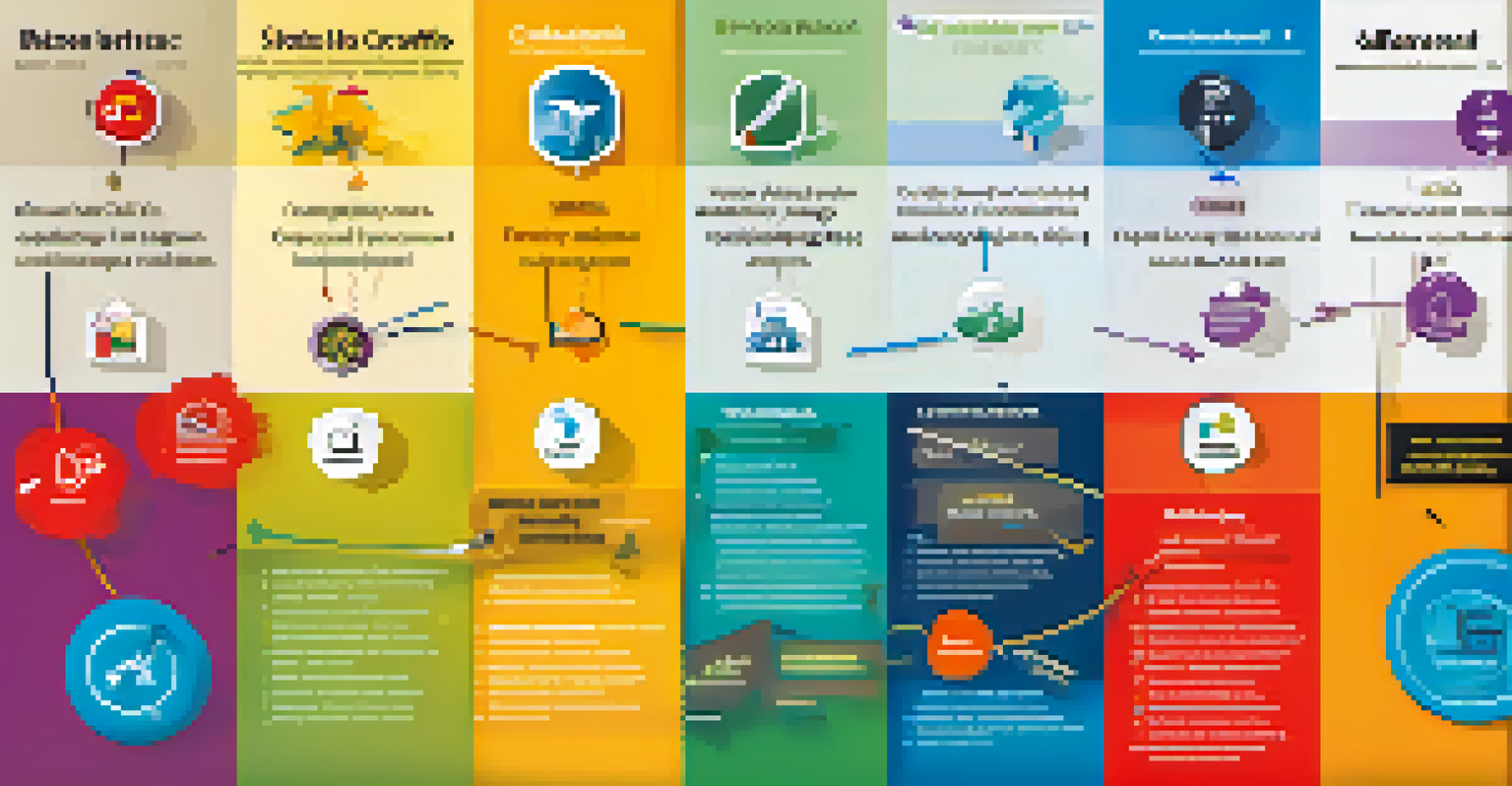Using Action Verbs to Strengthen Your Resume

What Are Action Verbs and Why Use Them?
Action verbs are powerful words that convey your accomplishments and skills directly and vividly. They create a sense of movement and energy, making your resume more engaging. Instead of saying 'responsible for managing a team,' you could say 'led a team,' which sounds much more impactful.
Words are, of course, the most powerful drug used by mankind.
Using action verbs helps to illustrate your contributions and achievements clearly. They allow hiring managers to quickly grasp your capabilities and the value you can bring to their organization. This simple shift in language can make your resume stand out in a sea of applicants.
Incorporating these verbs effectively not only strengthens your resume but also builds your personal brand. You want to present yourself as a proactive, results-oriented individual, and action verbs are a key tool in achieving that.
Choosing the Right Action Verbs for Your Resume
When selecting action verbs, consider the specific skills and accomplishments you want to highlight. Tailoring your word choice to match the job description can make a significant difference. For instance, if the job emphasizes teamwork, verbs like 'collaborated' or 'coordinated' would be ideal.

Another strategy is to use a mix of common and unique action verbs to keep things fresh and engaging. While 'managed' and 'developed' are effective, consider using words like 'spearheaded' or 'transformed' to showcase your initiative. This variety can help capture the attention of hiring managers.
Power of Action Verbs
Action verbs enhance your resume by conveying accomplishments and skills more vividly, making you stand out to hiring managers.
Ultimately, the action verbs you choose should reflect your authentic experiences. Select words that genuinely represent what you’ve done, as this honesty will resonate well with potential employers.
Examples of Powerful Action Verbs
To give you a clearer idea, here are some powerful action verbs categorized by skill set. For leadership roles, words like 'directed,' 'mentored,' or 'orchestrated' can highlight your ability to guide others. If you're in sales, consider verbs like 'generated,' 'negotiated,' or 'expanded' to showcase your results.
The most important thing in communication is hearing what isn't said.
In technical fields, verbs such as 'engineered,' 'programmed,' or 'analyzed' can effectively communicate your expertise. These words not only demonstrate your skills but also make your contributions more tangible. Potential employers will appreciate the clarity in your qualifications.
Remember, the goal is to paint a picture of your achievements through your word choices. Using these action verbs strategically can transform a simple list of tasks into a compelling narrative of your professional journey.
Avoiding Overused Action Verbs
While it's tempting to use popular action verbs like 'achieved' or 'managed,' overusing them can lead to a generic and uninspired resume. Hiring managers see these words frequently, which can diminish their impact. Instead, aim to find synonyms or more descriptive alternatives.
For example, instead of 'managed a project,' try 'executed a project from conception to completion.' Such phrases provide more detail and demonstrate your involvement and leadership. This approach can help your resume feel fresher and more engaging.
Choose Industry-Specific Verbs
Tailoring your action verbs to match the specific skills valued in your industry can significantly boost your resume's relevance.
Ultimately, the goal is to differentiate yourself from other candidates. By avoiding clichés and opting for more specific action verbs, you can make a lasting impression on hiring managers.
Using Action Verbs in Different Resume Sections
Action verbs can be effectively used throughout various sections of your resume. In your experience section, they can describe your roles and accomplishments clearly. In contrast, the skills section can highlight your expertise using concise phrases that start with action verbs.
For example, instead of simply listing 'teamwork' as a skill, you could say 'collaborated with cross-functional teams to enhance project delivery.' This structure emphasizes not just the skill but also how you applied it in a practical context.
Even in your summary or objective statement, action verbs can create a strong first impression. Phrases like 'driven professional seeking to innovate' immediately convey your attitude and intentions, making your resume more engaging from the get-go.
Tailoring Action Verbs for Different Industries
Different industries often prioritize specific skill sets, and your action verbs should reflect that. For instance, in creative fields, verbs like 'designed,' 'crafted,' or 'imagined' may resonate more than in traditional corporate environments. Understanding the industry language is key to connecting with potential employers.
In contrast, technical industries may value verbs such as 'developed,' 'engineered,' or 'optimized.' Using the right terminology demonstrates that you’re not only skilled but also familiar with the industry’s expectations and standards.
Avoid Clichés for Impact
Steering clear of overused action verbs allows your resume to feel fresh and engaging, helping you make a lasting impression.
Researching job postings and industry trends can provide insight into which action verbs are most effective. By aligning your language with industry norms, you can enhance the relevance and impact of your resume.
Final Tips for Using Action Verbs Effectively
To wrap things up, remember that clarity and specificity are your friends when it comes to using action verbs. Always aim to convey your accomplishments in a way that is easy to understand. This means avoiding overly complex phrases and focusing on straightforward language that highlights your achievements.
Additionally, consider the flow of your resume. Ensure that your action verbs connect logically from one section to the next, creating a cohesive narrative about your career. This seamless transition keeps the reader engaged and allows them to see the progression of your skills and experiences.

Lastly, don’t forget to proofread! Typos and grammatical errors can detract from your professional image. A well-polished resume with carefully chosen action verbs can make all the difference in your job search.